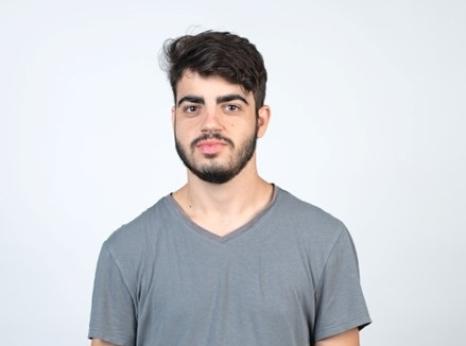Israel and Occupied Palestinian Territories: Conscientious Objector Detained In Israel

Military service is compulsory for most citizens in Israel. Several Israeli teenagers go to prison each year because of their conscientious objection to serving in the army. In 2022, Einat Gerlitz, Nave Shabtay Levin, Evyatar Moshe Rubin, Shahar Schwartz and others served repeated detention orders because of their conscientious objection. Conscientious objectors are commonly deprived of their liberty for five months or more.
Between 3 and 5 March 2023, in connection with Israeli protests against the Israeli government’s proposals for a judicial overhaul, some 700 reservist soldiers, many of them in specialized skilled units and in higher ranks in the standing army, sent letters to the Minister of Defence and the Commander-in-Chief of the Israeli army stating that they would resign from service. Yuval Dag explained his position on the Israeli anti-government protests: “Recently, many reservists are saying they will not serve in the army because they are afraid of living under a dictatorship. That’s great and important. But we need to remember that in the occupied territories there has never been democracy. And the anti-democratic institution that rules there is the army.” In response to these acts of protest, Prime Minister Benjamin Netanyahu said on 6 March that “[collective military service] is the first and most important foundation of our existence in our land. The refusals threaten the foundation of our existence. […] In society there is room for protest but […] no room for refusals.” The acknowledgement of the right to protest is, however, partial: in practice the right of Jewish Israeli citizens to peacefully express their opinion and opposition to governmental actions is generally respected. On the other hand, one of the manifestations of apartheid is that this right to protest peacefully is not extended to Palestinian citizens of Israel or residents of the Occupied Palestinian Territories.
Although the Israeli army’s Conscience Committee can decide to allow exemption from military service, this is usually granted only to those conscientious objectors who refuse to serve on religious grounds. However, according to the UN Human Rights Committee, no discrimination is permitted “among conscientious objectors on the basis of the nature of their particular beliefs” - i.e. whether they are religious or otherwise. Even though Israeli law does allow for exemption on grounds of pacifism, the army’s Conscience Committee frequently rejects pacifists' cases. The authorities deny objectors the possibility of performing alternative civilian service. Conscientious objectors in Israel can be convicted of and imprisoned for the same “offence” repeatedly. In 2003, the UN Working Group on Arbitrary Detention said that this practice flouts the rights of conscientious objectors under international human rights standards which prohibit “double jeopardy”.
Amnesty International considers a conscientious objector to be any person who, for reasons of conscience or profound conviction, refuses to perform service in the armed forces, or any other direct or indirect participation in wars or armed conflicts. This can include refusal to participate in a war because one disagrees with its aims or the manner in which it is being waged, even if one does not oppose taking part in all wars. Amnesty International considers a conscientious objector to be a prisoner of conscience when they are detained or imprisoned solely because they have been denied their right to register an objection or given the possibility of performing a genuinely civilian alternative service. They would also be prisoners of conscience if imprisoned for leaving the armed forces without authorization for reasons of conscience, if they have taken reasonable steps to secure release from military obligations. Amnesty International’s Prisoner of Conscience determination is based on the information available to Amnesty International regarding the circumstances leading to the person’s detention. In naming a person as a Prisoner of Conscience, Amnesty International is affirming that this person must be immediately and unconditionally released but is not endorsing past or present views or conduct by them.
In 1995, in its Resolution 1998/77, the UN Commission for Human Rights has stated that the right to conscientious objection to military service is protected by Article 18 of the International Covenant on Civil and Political Rights (ICCPR), right to freedom of religion, conscience and belief. In the resolution, which has been re-endorsed by the Human Rights Council repeatedly, most recently in 2019, the Commission emphasized that states must “refrain from subjecting conscientious objectors to imprisonment and to repeated punishment for failure to perform military service,” recalling “that no one shall be liable or punished again for an offence for which he has already been finally convicted or acquitted in accordance with the law and penal procedure of each country.”